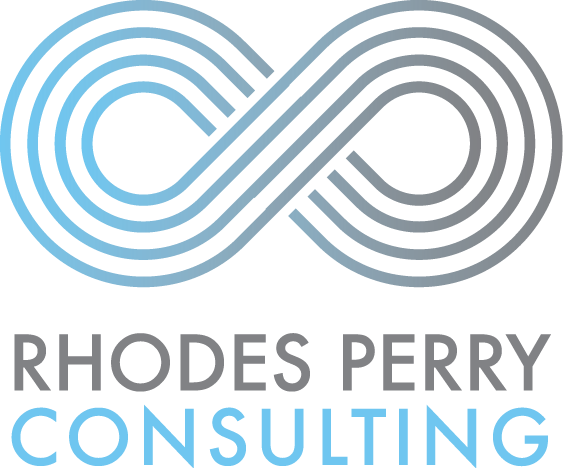It’s Shakespearean, But Is Your LGBTQ Policy Actionable?
Many great ideas go unexecuted, and many great executioners are without ideas. One without the other is worthless. -- Tim Blixseth
Most Americans falsely believe LGBTQ workers already have employment protections. In reality, LGBTQ workers can still be fired in 30 states simply for who they are, or who they love. While Congress remains at a standstill on this particular issue, a growing number of employers are taking the initiative to develop their own LGBTQ inclusive policies. These policies offer vital protections for LGBTQ employees living in states that lack such laws like North Carolina and Indiana – two particular jurisdictions that have instead enacted draconian laws that unfairly target LGBTQ people.
These leading employers understand that inclusive policies attract top LGBTQ talent, improve innovation, and empower their businesses to reach new markets yielding greater profits. In order for executives to translate boardroom policies into lasting culture change; however, they must first fine tune their vision, engage their executive team, and assess the workplace climate. After completing these actions, a workplace can then focus on LGBTQ policy implementation. This post details the fourth stage of my consultancy’s TEAMS Transformation Method™, and includes the following strategies to consider when implementing a LGBTQ policy:
1. Inform Your Actions. Inform your implementation efforts by conducting and reviewing an assessment of your workplace climate. Take the necessary time to strengthen your LGBTQ policy based on what you have learned from this assessment. Specifically, be sure that broad policy language is paired with concrete practices designed to equip staff with the confidence and skills needed to engage LGBTQ colleagues and clients. Also, be sure that your policy mandates workforce development efforts such as training and coaching, and system upgrades to better track openly LGBTQ staff, clients, and contractors. Also, the policy should mandate that metrics are developed to help analyze implementation progress. Take action by using the workplace assessment as your guide to inform further implementation efforts.
2. Invest in Experts. Every great workplace initiative requires dedicated program resources and staff to realize its success. Since workplace culture change efforts are no different, it is recommended for leadership to hire permanent full-time experts dedicated to promoting LGBTQ diversity & inclusion within the workplace. These staff serve as the principle consultants leading all policy implementation efforts. If resources are limited, you can start by seeking an external advisor to help realize the workplace transformation desired. Investing in the right expertise will streamline the time required to implement your policy, which can deliver quicker results, such as practice shifts that welcome and affirm LGBTQ people throughout the workforce.
3. Enforce the Rules. Staff and external experts charged with implementing the LGBTQ policy should improve upon existing enforcement and accountability protocols. Such protocols may include systems enabling employees or clients to report allegations of LGBTQ discrimination to a team of trained specialists. The team should work closely with those on staff charged with implementing and enforcing the LGBTQ policy. Both allegations, and questions on how to implement the LGBTQ policy should be tracked and analyzed to better identify workplace trends, discover gaps in the policy, and strengthen future efforts to improve workplace culture for LGBTQ people.
4. Recruit Diverse Talent. To signal that LGBTQ employees belong within the workplace, leadership should invest in targeted LGBTQ recruitment, retention, and professional development efforts. Should your workplace have an existing LGBTQ employee resource group (ERG), work with this group on identifying where recruitment should occur, survey the group on different retention strategies to keep employees engaged throughout their careers, and work to establish mentorship programs within your workplace to match senior LGBTQ employees with junior staff. Cultivating these matchmaker relationships will support and help younger professionals understand how their LGBTQ identity influences and strengthens their personal leadership style.
5. Know When You’re Done. The fourth step of the TEAMS Transformation Method™ is complete when you are able to walk away with a clear and specific LGBTQ implementation plan informed by your workplace assessment. This step enables your leadership team to execute policy mandates by brining experts on board who will help shift your workplace culture to one that is more inclusive of LGBTQ employees. You’ll also have a better understanding of the systems and staff required to successfully enforce this policy. Most importantly, by taking these actions, your workplace will attract, engage, and eventually develop more LGBTQ talent, which will diversify and strengthen your team.
If you’re interested in learning more about the TEAMS Transformation Method™, please be sure to save the date for tomorrow, September 22 at 11 am PT/ 2 pm ET. I’ll be hosting a live Q&A webinar focused on engaging LGBTQ employees. During the webinar, participants will have the opportunity to share comments and questions related to this topic. In advance of the webinar, interested participants may share their opinions on the subject, all of which will help inform the webinar discussion. Save your seat today by visiting: http://www.rhodesperry.com/register.

